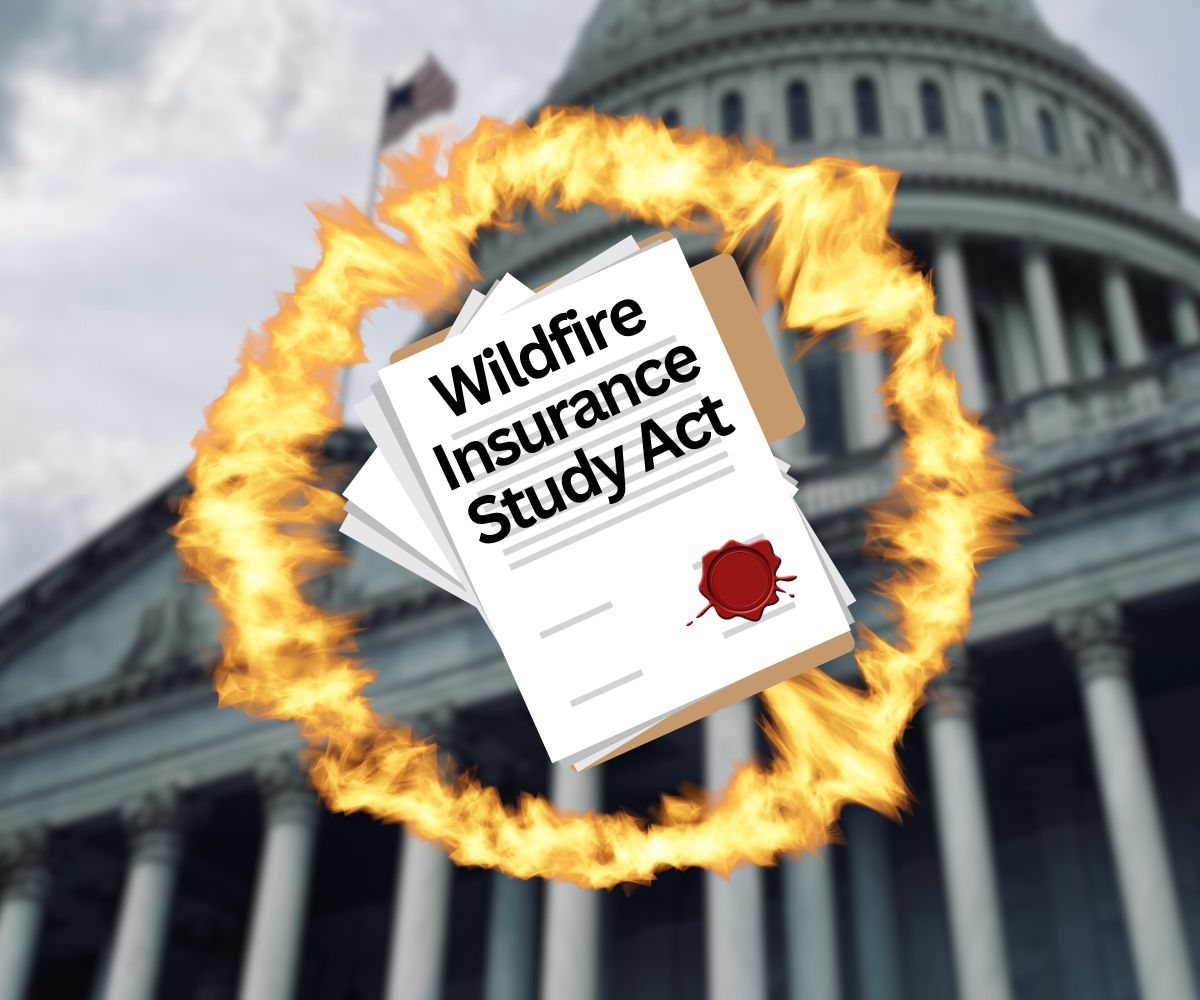Setting Opinions Aside: An Objective Look at Wildfire Insurance
In the wake of devastating wildfires across the country, the House Financial Services Committee has taken a significant step towards addressing the growing concern over insurance coverage for damages resulting from such disasters. With a strong bipartisan backing, the committee has forwarded a bill that mandates a comprehensive study on the state of wildfire insurance.
Rep. Patrick McHenry, R-N.C. and chair of the committee, emphasized that the conversation about wildfires must transcend the usual debate on climate change, focusing on observable impacts. In 2020, wildfires obliterated 10 million acres and incurred damages upwards of $16 billion, pinpointing the stark reality of these natural events’ physical and economic toll.
“Climate change and the shifting patterns of our weather are quite apparent to those underwriting insurance,” McHenry remarked during the committee meeting.
“It’s not just a matter of political discussion about climate change — it’s the tangible losses insurers face and homeowners’ struggles with spiraling insurance rates. The data underscores increasingly expensive weather occurrences that are costing real people their hard-earned money.”
Proposed Bill Mandates GAO Investigation into Wildfire Risks and Impact on Property Insurance Policies
Under the proposed bill, the Government Accountability Office (GAO) would be tasked to conduct a far-reaching investigation into wildfire risks and their effects on property insurance for both homeowners and businesses. This investigation includes analyzing changes like premium spikes and reduced coverage, surveying the actions of state regulators, and identifying difficulties associated with underwriting wildfire risks.
The deadline set by the legislation is two years from enactment, by which the findings should be reported, including:
- Policy alternatives if private insurers withdraw from providing wildfire coverage.
- Pros and cons of allowing insurers to implement risk-adjusted premiums for wildfire danger, coupled with subsidized rates for lower-income owners.
- Potential wildfire losses significant enough to threaten the insurers’ financial stability.
Furthermore, the study will look into why more people are moving to remote areas with dense foliage and a heightened risk of wildfires, contributing to the affordable housing demand.
Anticipated Changes for Consumers from the Proposed Wildfire Insurance Legislation
There’s speculation that this could lead to more stringent underwriting prerequisites for homeowners, such as mandatory mitigation actions – “hardening” of homes by way of structural improvements and landscaping aimed at reducing wildfire susceptibility. These precautions may be required by property owners, local governments, or other land management authorities.
The ramifications of this bill, if passed, will be wide-reaching, affecting not just California but any state threatened by the increasing frequency and intensity of wildfires. Insurance industry professionals and homeowners alike stand to gain critical insights from the GAO’s study, which could lead to more fair and practical insurance practices that account for the escalating perils associated with wildfires.
For insurers, the bill’s proposed study may help refine their approach to risk assessment and policy pricing. For homeowners, it’s about maintaining affordable insurance coverage without sacrificing essential protections against unpredictable natural calamities. The results of this study promise to be a turning point in the dialogue on national wildfire response and preparedness.
Assessing the Present Circumstances in Relation to Time
It is essential to note that the proposed bill does not guarantee any immediate changes in insurance coverage policies. Still, it provides a solid foundation for informed decision-making regarding future legislation and regulatory actions.
Moreover, this bill highlights the need for collaboration between government agencies, insurance companies and homeowners to address the growing threat of wildfires. With climate change posing an ever-increasing risk, it is crucial to have a comprehensive understanding of wildfire insurance coverage and its impact on all parties involved. This proposed study serves as a step towards creating more resilient communities and protecting homeowners from the devastating financial effects of wildfires. As the saying goes, “An ounce of prevention is worth a pound of cure,” and this bill holds the potential to prevent future losses and promote responsible risk
However, some critics argue that the study, while much needed, is too late in addressing an already critical issue. By the time any legislative or regulatory changes can be implemented based on the study’s outcomes, they fear it might be too late to alter the course of the emerging crisis. These detractors point out the inherently slow-moving nature of governmental processes and suggest that without swift action, the situation could necessitate federal intervention, mirroring the path of the National Flood Insurance Program. The concern is that delaying meaningful action until the study’s recommendations are fully assessed and acted upon could allow the wildfire insurance coverage gap to widen further, potentially leading to more drastic and costly federal solutions down the line.
Frequently Asked Questions About Hardening Your Home
1. What does ‘hardening your home’ mean? Hardening your home refers to making modifications to your house to make it more resistant to natural disasters, such as wildfires, hurricanes, or earthquakes.
2. Why is home hardening important? Home hardening can protect your property from severe damage during natural disasters. It can also contribute to the safety of your household by reducing the risk of injuries.
3. What are some effective ways to harden my home against wildfires? To harden your home against wildfires, it’s essential to use ignition-resistant materials for key structural elements such as siding, roofs, decks, attic vents, eaves, and windows. Double-paned or tempered glass windows can add an extra layer of protection. Reducing potential fuel sources is also crucial: avoid storing combustible materials on or under decks, and clear all flammable vegetation and mulch to establish a five-foot buffer zone around your home. Regular maintenance is also important, including cleaning gutters and roofs of debris and sealing all vents with 1/8-inch metal mesh to prevent the entry of embers.
4. How can I harden my home against hurricanes? You can reinforce your roof, doors, and windows, secure loose outdoor items, trim overhanging tree branches, and install hurricane shutters or impact-resistant windows.
5. How can I harden my home against earthquakes? To protect your home from earthquakes, you can secure heavy items, reinforce your home’s structure, particularly the foundation, retrofit your house if it’s older, and consider installing an automatic gas shutoff valve.
6. Is home hardening expensive? The cost of home hardening can vary depending on the specific modifications required for your home. Some measures can be relatively inexpensive, while others may require a significant investment. However, the cost should be weighed against potential losses in the event of a disaster.
7. Can I do home hardening myself, or should I hire a professional? While you can undertake some hardening measures yourself, such as clearing vegetation or securing heavy items, structural modifications should be carried out by professionals to ensure they are done correctly and safely.
8. Does hardening my home affect my insurance premiums? In some cases, hardening your home could potentially lower your insurance premiums by reducing the risk associated with your property. It’s best to discuss this with your insurance provider.
9. Where can I get more information about home hardening? You can consult local building codes, fire department recommendations, and resources from organizations like the Federal Emergency Management Agency (FEMA) for more information on home hardening.

